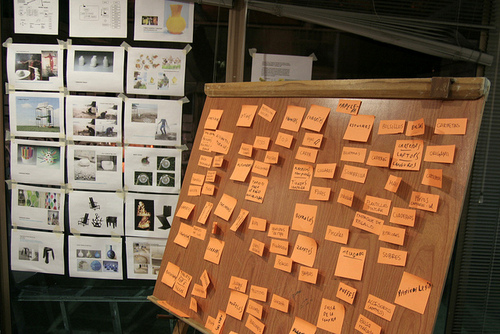 Anyone who’s ever published a book on anything is bound to have been asked one question:
Anyone who’s ever published a book on anything is bound to have been asked one question:
Where do you get your ideas?
What do they think? That there’s a global idea shortage? (Hey, folks, that’s a global smarts shortage, not a global idea shortage!) Or do they think ideas are as rare as an honest politician?
Heck, ideas are everywhere. It’s not that hard to come up with ideas for anything. Only two things are needed for that:
- You have to be willing to read. Everything. Anything. If English isn’t your native language, read in your own language. Doesn’t matter what you read, as long as you read anything anywhere. Okay…the fine print on your credit card statements gets a pass, but read anything else you find.
- You have to be willing to observe. Everyone. Notice the people around you, what they do and how they behave. Is there anything more interesting than other people’s lives? Why else are we addicted to the “Real Housewives of Places You Can’t Afford to Live” shows?
The more you read, the more attention you pay to other people, the more likely ideas for your writing–yes, even class assignments–will jump out and bite you on your butt.
So what do you do when you’re in a class on international ecological zoological nursing, and the instructor asks you to come up with a paper relevant to the subject? I’ll give you a simple procedure that’ll help you figure out a topic:
- Figure out what the heck international ecological zoological nursing even means. Did you really sign up for a course like that? Why? What on earth were you thinking???
- Find something in the course that has some spark of interest for you, even if it’s a stretch. How about the ecological aspects of nursing giant pandas in China? That hits every one of “international,” “ecological,” “nursing” and “zoological.”
- Do a little research in your school’s online library. Try search terms like “nursing pandas” and “ecology of pandas,” or whatever else seems reasonable. If nothing else, use terms you pull from the titles or topics in your class unit modules.
- Skim-read through the abstracts of the papers you find. Don’t try to read them for detail, just get an idea of what’s out there. Take notes, but nothing detailed. Just jot down ideas that pop up.
- Take a break. Let the ideas settle in your mind at least overnight if you have the time. If not, at least go find some chocolate. Chocolate always makes things better, right?
- When you come back from break, let the ideas float to the surface. The key thing is that for any course, you have to make sure your topic is small enough. Trust me, if you have 8 or 10 pages, you’re not going to solve the problem of world peace or global warming. Keep your topic small, keep it focused. For example, don’t include nursing penguins or albatrosses in your paper. Stick to just the giant pandas.
See? Easy. Or at least not as hard as you thought it was, right?



 Follow
Follow Fan
Fan RSS
RSS